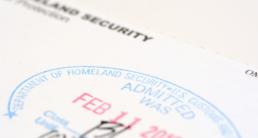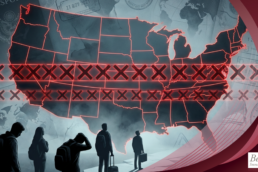Travelers entering or leaving the United States are subject to inspection by U.S. Customs and Border Protection (CBP). Under the long-standing “border search exception,” CBP officers can search belongings without a warrant or probable cause. Originally intended to intercept physical contraband, this authority now extends to digital devices, raising concerns about how privacy rights apply at the border.
CBP’s Current Policy on Electronic Device Searches
CBP’s policies on digital searches are outlined in Directive 3340-049A, issued in 2018 and updated in April 2023. The policy distinguishes between two types of device inspections: basic and advanced.
A basic search allows officers to manually review content that is stored on the device itself. These inspections do not require any specific suspicion. An advanced search, on the other hand, involves connecting the device to external tools to copy, review, or analyze data. This more invasive process requires supervisory approval and must be based on reasonable suspicion or concerns related to national security. Importantly, CBP officers are prohibited from accessing cloud-based content during either type of search.
What Travelers Should Do
Travelers are expected to present their electronic devices in a condition that allows inspection. This may involve unlocking the device or providing a passcode. If the traveler refuses, CBP can detain the device and seek assistance to bypass encryption if necessary. While devices are usually returned before the traveler leaves the port of entry, CBP may seize a device if it believes there is evidence of unlawful activity.
According to CBP’s guidance, all persons, baggage, and merchandise entering or exiting the U.S. are subject to inspection. Failure to comply with an inspection request may result in delays or the temporary detention of devices.
How Courts Are Interpreting CBP’s Search Authority
Recent court decisions have revealed a split in how different jurisdictions view CBP’s authority over digital searches. In United States v. Sultanov (2024), a federal court in the Eastern District of New York ruled that advanced, warrantless searches of electronic devices at the border exceeded the scope of the border search exception. The court held that such searches are “nonroutine” and must be supported by a warrant based on probable cause—at least at points of entry like JFK Airport.
In contrast, the Seventh Circuit took a different approach in United States v. Mendez (2024), upholding CBP’s authority to conduct device searches without a warrant. The court emphasized the government’s broad interest in maintaining border security and determined that individualized suspicion was not necessary for these searches to proceed.
A Push for Legislative Reform
In response to growing privacy concerns, a bipartisan group of lawmakers is working to establish stronger legal protections. Senators Ron Wyden (D-OR) and Rand Paul (R-KY) have introduced legislation that would require CBP to obtain a warrant before accessing digital devices belonging to U.S. citizens. This proposal draws from the precedent set in Riley v. California (2014), where the Supreme Court held that police must obtain a warrant to search a smartphone during an arrest.
The goal of the proposed bill is to standardize privacy protections across contexts and better align border practices with constitutional rights in the digital age. If passed, the law would provide travelers with enhanced safeguards against warrantless intrusions into their personal data.
Practical Tips for Protecting Your Privacy
Until new legislation is enacted, travelers should be aware of their current obligations and take steps to protect their information. This includes minimizing the amount of sensitive data stored on devices, using strong encryption, and backing up content before travel. Understanding your rights and the limits of CBP’s authority can help you navigate the inspection process with greater confidence and peace of mind.
Ready to have Berardi on your side?
Whether you’re a business looking to hire or a professional hoping to relocate, immigration law can be complicated. But you don’t have to do it alone. Put our experience to work for you.



